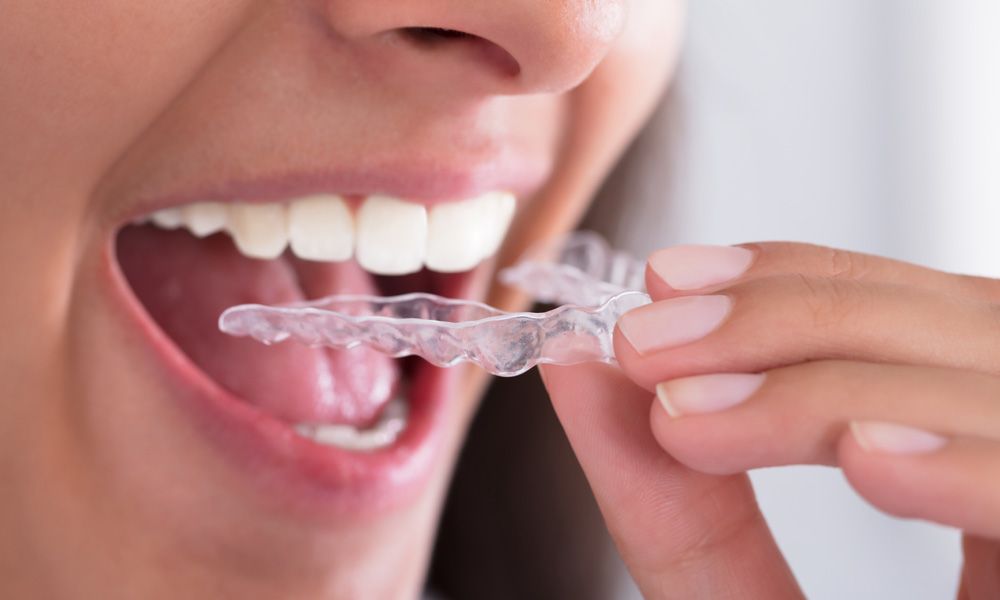Surgical Procedures and Implants
Surgical operations in our clinic are carried out under local anesthesia or under sedation / general anesthesia in contracted hospitals, depending on the type of surgery and the preference of our patients. Oral, Dental and Maxillofacial Surgery operations carried out in our clinic:
- Tooth Extractions, Impacted Tooth Extractions,
- Cysts and tumors of mouth, teeth and jaw tissues
- Fractures / Trauma of the teeth and jaw bones
- Surgical and non-surgical treatment of temporomandibular joint diseases,
- Implant Surgery, Other surgeries related to implant treatments
- Zygomatic Implant applications
- Pre-prosthetic surgical operations (Preprosthetic Surgery)
- Endodontic surgery (Apical Resection)
- Reconstructions of jaw bones, Grafting operations
- Diagnosis and treatment of Oral Diseases (Biopsy)
- Maxillofacial Deformities / Surgery related to orthodontic treatments
- Infections of the maxillofacial region
Dental Implant Implants are the materials prepared from titanium, which are inserted into the jaw, imitating the form of the tooth root.
Titanium is a 100% tissue-friendly material. It concretes by forming a special bond with bone in the area where it is placed. Thus, the patient is able to use the Implant easily, as if it is his/her own teeth.
Unarguably, the implants are the best material to imitate the natural tooth in the case of missing teeth. Implants can be preferred in the case of a single missing teeth, a few missing teeth or in the loss of all teeth (total edentulism).
To whom and under what conditions can the implant be implemented?
In the area planned for implant procedure, the jawbone must have the sufficient height and width to encompass the implant. If there is not sufficient bone, preliminary operations can be performed in order to prepare the related area. The quality of the existing bone is another factor affecting the success of the implant. It will be enough that the bone must have completed its development, for the application. There is no upper age limit. Implants can be applied to anyone who has a good general health.
How long does the implant treatment take?
It is around 2-6 months before the bone unites with the jaw bone, after the operation. During this period, temporary prosthesis can be used. After the end of the retention (adherence) period, the implementation of permanent dentures can be started.
Thanks to a special implant technology we use, this waiting period can reduce up to 3 weeks in suitable cases. In patients with no teeth, we are able to carry out prosthetic restoration with either 2, 4 or 6 implants, depending on the severity of the case and aesthetic expectation.
Similarly, implant can be possible immediately after tooth extraction in suitable cases, owing to a special method called Immediat Implant.

What should the patients receiving an implant pay attention?
Hygiene is very crucial implant applications. Therefore, the person to receive implants must pay attention to oral care as it plays an important role in the success of the implant.
Advantages of implant treatment In time, there is a loss of substance in the bone areas from which the teeth are extracted and the bones become thinner and thinner.
So, some changes occur of the facial profile. Once the implants are inserted, loss of bone is prevented.
As the chewing function is recovered, a more balanced and good nutrition is achieved. In this way, any stomach problems caused by lack of chewing are eliminated.
The person regains his/her self-confidence since the natural look and aesthetics is restored.

Tooth extraction
With the developing technology and the increase in the variety of the materials used, tooth extraction is hardly used in dentistry today.
Nevertheless, a tooth extraction can still be required for various reasons (a vertically broken root as a result of trauma, an impacted wisdom teeth damaging the surrounding tissues and the necessity to make room for orthodontic treatment). Following the extraction, all possible treatment alternatives are should be considered and rehabilitation should be ensured as soon as possible.

Temporamandibular Joint (TMJ) Treatment
TMJ diseases are disorders seen in joint functions, as a result of intraarticular or extraarticular pathologies. The cause of the problem is usually bruxism (tooth clenching or grinding). Protective splint treatment is applied to the patients in order to eliminate this problem. These custom-made oral protection splints are used over the course of the specified treatment, to eliminate the signs and symptoms of bruxism and joint disorders.
In addition to the splint treatment, we also implement temporal or massater botox treatment. Thanks to Botox, clenching will reduce or disappear completely. Joint pains and headaches are relieved. The form of the face which has turned into an angular shape is returned to oval form, ensuring an aesthetic look.

What is Bite-Guard?
Bruxism is the habit of involuntary teeth grinding and jaw clenching during the sleep. This leads to some problems, such as wearing on teeth, fractures in the fillings, pain in facial muscles and joints, squeaking during retraction and protraction of the joints, headache, wobbly tooth, diastema and tenderness.
A 1-1.5 mm thick, hard splint called Bite-Guard is used during the sleep as part of the treatment.

